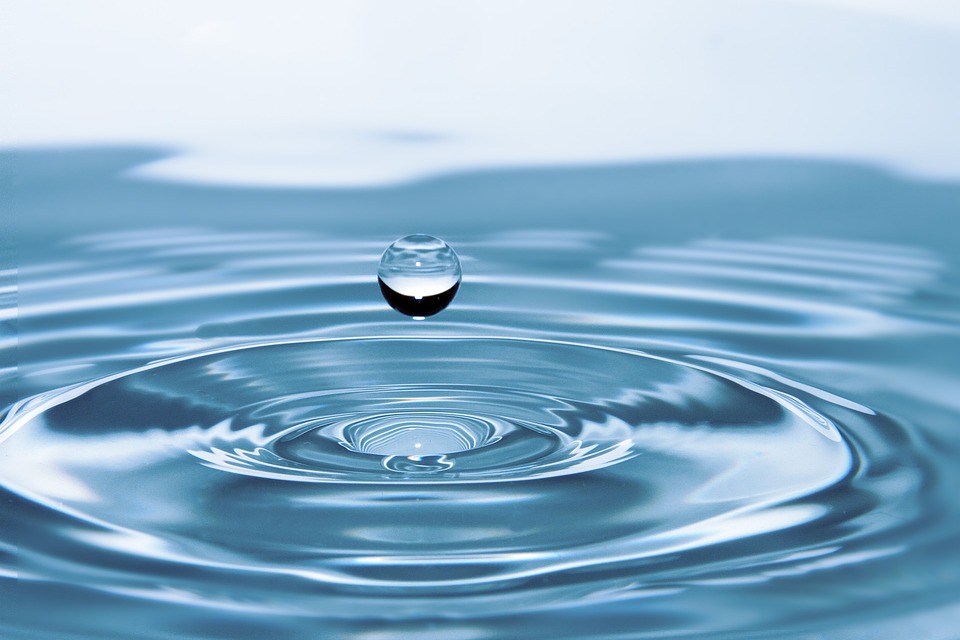
UM Delegation to attend UN 2023 Water Conference in New York
Access to clean and safe drinking water is an internationally recognized human right, essential to the full enjoyment of life. Yet, it is under immediate threat. Indigenous communities around the world have historically been excluded from many important decisions on water policy. There is now a growing global acknowledgement that Indigenous Peoples should play a significant role in decision-making about water-related policies.
To tackle these challenges, a UM delegation has been selected to attend the United Nations 2023 Water Conference in New York from March 22 -24, 2023. This international conference will bring together water experts from around the world united in a common goal of building strong partnerships to address water challenges and achieve global sustainability targets. The UN 2023 Water Conference will be co-hosted by the Netherlands and Tajikistan.
This inter-disciplinary delegation of UM researchers will bring together Indigenous and non-Indigenous scholars and partners to help address pressing global water-related challenges. UM delegates will have the unique opportunity to help set the agenda for global water governance and sustainability though Indigenous knowledge, self-determination, and relationships with water.
The UM delegation is comprised of many scholars and partners with vast expertise in their research fields, and includes Dr. Myrle Ballard, Taylor Galvin, Claire Herbert (Co-chair UNAI Hub for SDG 6), and Dr. Nicole J. Wilson (Co-chair UNAI Hub for SDG 6). The delegation will also be joined by two citizens from Carcross/Tagish First Nation (Wilson’s long-term research partner) including Colleen James or Ghoóch Tlâ (“Wolf Mother” in Tlingit) and Jewel Davies (Yekhunashîn/Khatuku).
UM Delegation Members
 Dr. Myrle Ballard
Dr. Myrle Ballard
Dr. Myrle Ballard is the Director of the Indigenous Science Division at Environment and Climate Change Canada and an Assistant Professor and Indigenous Scholar in the Dept. of Chemistry at the University of Manitoba. Anishnaabe from Lake St. Martin First Nation, Dr. Ballard’s latest research explores how her fluency in Anishinaabe mowin can transform approaches to water resource management using baseline monitors. Dr. Ballard also serves on various committees and currently holds prestigious Natural Sciences and Engineering Research Council of Canada and Canadian Institutes for Health Research grants.
 Taylor Galvin
Taylor Galvin
Taylor Galvin (Anishinaabekwe, Brokenhead Ojibway Nation) is an award-winning fourth-year Environmental Sciences student, land-based educator, water protector, land guardian, and president/co-founder of the University of Manitoba’s Indigenous Concern on the Environment. Taylor’s focus area for her undergraduate degree is Wildlife Management, with the goal of developing an Indigenous Wildlife Management strategy for non-indigenous researchers who aim to work with and empower Indigenous communities. Currently, she is a Research Affiliate Program Student with the newly formed Indigenous Science Division under Environment and Climate Change Canada. As a water protector, it has been Taylor’s goal to attend the UN Water Conference for many years to share about her community, the impacts faced on the Brokenhead River through agriculture, encourage youth participation in water protection, and honour our most precious and vulnerable resource.
 Colleen James or Ghoóch Tlâ (“Wolf Mother” in Tlingit)
Colleen James or Ghoóch Tlâ (“Wolf Mother” in Tlingit)
Colleen James is a C/TFN research advisor and knowledge keeper. She is Tlingit of the Daklaweidi (Killer Whale) clan, and a citizen of the C/TFN and a mother, a grandmother, and a great-grandmother. James received a Lifetime Achievement Award from the Assembly of First Nations Yukon Regional Leadership Ceremony and an honorary Bachelor of Science from Yukon University for her role as a knowledge keeper, ceremonial leader, cultural ambassador, language protector and teacher.
 Jewel Davies (Yekhunashîn/Khatuku)
Jewel Davies (Yekhunashîn/Khatuku)
Jewed Davies belongs to the Dakl’awedi (Eagle/Killer Whale) Clan of the Inland Tlingit people. She is a member of the Carcross/Tagish First Nation, was raised in Teslin, Yukon and currently lives in Whitehorse, Yukon. Jewel is a student in the Indigenous Governance Bachelor’s Degree Program at the Yukon University and a fellow on the Yukon First Nations Climate Action Fellowship. She is passionate about her culture and seeing it become a foundational basis within our systems. Working within the field of systems transformation, Jewel is currently mobilizing her passion for her ways of knowing and being as a development lead for the Illuminating Worldviews initiative, being jointly developed by RIVER and the Northern Council for Global Cooperation. Jewel is also the Youth Climate Ambassador for the How We Walk with the Land and the Water initiative, which she has been involved with on behalf of her First Nation since 2021.
 Claire Herbert
Claire Herbert
Claire is the co-chair of the North American Academic Impact Hub for the UN Sustainable Development Goals (UNAI SDG). She holds a variety of other positions including Data Coordinator at the Canadian Watershed Information Network and Program Coordinator of the Manitoba Great Lakes Program, Faculty of Environment, Earth and Resources at the University of Manitoba. Her expertise includes ecological terrestrial and freshwater dataset analysis and management. She currently manages the Manitoba Great Lakes Program at the University of Manitoba, acting as technical lead and program coordinator. Her current research focus is graduate work examining the effects of climate change on in-lake processes and remote sensing of algal blooms on prairie lakes.
 Dr. Nicole Wilson
Dr. Nicole Wilson
Nicole J. Wilson is a scholar of settler origin whose research examines Indigenous relationships with water and water governance in the context of colonialism and environmental change. She is an Assistant Professor and Canada Research Chair in Arctic Environmental Change and Governance in the Department of Environment & Geography and the Centre for Earth Observation Science at the University of Manitoba. She is also the co-chair of the UM United Nations Academic Impact Hub for Sustainable Development Goal 6 on Clean Water and Sanitation.
In 2018, the University of Manitoba was named the United Nations Academic Impact Hub for Sustainable Development Goal (SDG) 6: Clean Water and Sanitation, representing the only academic institution in North America that holds a UNAI designation. The groups expertise spans multiple disciplines including leading researchers from across the humanities, social sciences, and STEM fields. Members of the group have begun discussions with the University of Bergen (SDG 14 – Under the water) on potential synergies in research, including improving collaborations with Indigenous peoples. Additional in-person discussions with the University of Bergen will be held at a special event at the UN conference to promote collaboration and idea-sharing.
The UM is also coordinating a side-event outside of the UN headquarters with partners including Carcross/Tagish First Nation, Decolonizing water, and the Himalayan Peace Foundation on March 22, 2023. The event will feature a panel to discuss how the Indigenous peoples’ strengths and the challenges they face can help the broader water community in achieving SDG 6. The event will be live streamed for the entire UM community, to sign up please click here.
The UM delegation is pleased to attend the UN 2023 Water Conference with generous support from the Clayton H. Riddell Faculty of Environment, Earth and Resources, the Centre for Human Rights Research, and the Canada Research Chairs Program.






